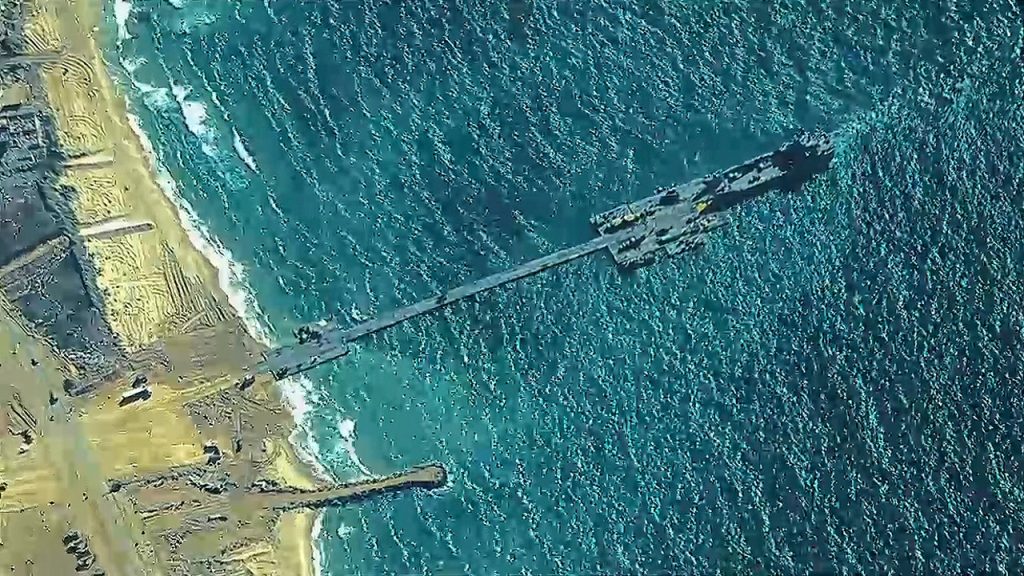A U.S.-built pier has been installed to bring humanitarian aid to Gaza by sea, amid intensified fighting, threats from Hamas, and uncertainty about safety from Israeli forces. Despite hopes for the sea route, officials caution that it will only provide a fraction of the needed aid. Even with the planned 90 to 150 truckloads a day, they believe at least 500 truckloads are necessary to address the severe food and water shortages in Gaza due to restrictions on land crossings. The ongoing conflict between Israel and Hamas has exacerbated the humanitarian crisis in the region.
International experts report that all 2.3 million people in Gaza are facing acute food insecurity, with over 1.1 million at catastrophic levels. The U.S. Agency for International Development and the U.N. World Food Program have emphasized the urgent need for aid to prevent famine in the region. Despite the sea route potentially reaching up to half a million people, this would only cover a small portion of the population. The involvement of the Israeli military in the aid distribution process raises concerns about neutrality and the safety of humanitarian workers.
Challenges remain for aid distribution in Gaza, with questions about how aid groups will operate and distribute food safely in the region. Negotiations are ongoing between U.N. officials and the Israeli military to ensure the protection of aid workers. The recent surge in fighting has heightened security concerns, potentially risking a shutdown of the maritime route. Access to fuel is crucial for aid delivery, but Israeli forces have prevented it from entering Gaza, hindering the distribution of essential supplies.
The U.S. government, the U.N., and aid organizations have called on Israel to allow more aid through land crossings to alleviate the suffering of civilians in Gaza. They have also urged the Israeli military to coordinate with aid groups to prevent attacks on humanitarian workers. While the floating pier provides some relief, it is considered a partial solution at best. The U.N. emphasizes the need for access by land to quickly reach those most in need in Gaza and avert a famine crisis. International pressure is being applied to Israel to facilitate greater access for aid delivery.
Israel maintains that it does not restrict humanitarian aid entry and blames the U.N. for delays in distributing aid within Gaza. Ongoing conflicts, Israeli attacks, and security conditions have contributed to disruptions in aid delivery. Recent efforts by Israel to open crossings into northern Gaza have been met with challenges from Hamas attacks. While the sea route offers some hope for addressing the crisis in Gaza, a more comprehensive solution involving increased aid access through land crossings is still needed to prevent further suffering and famine in the region.


